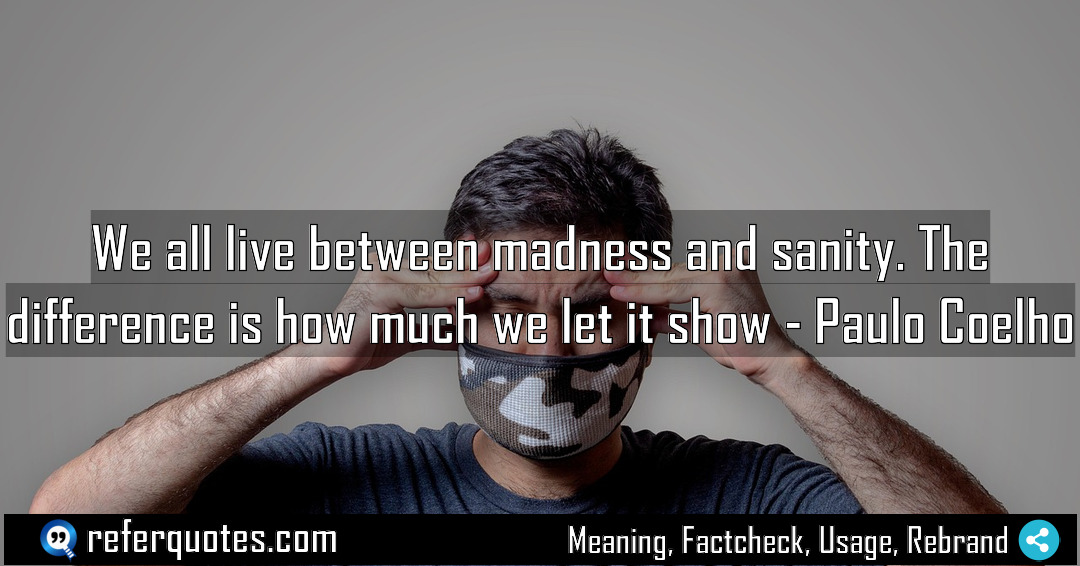You know, when Coelho says We all live between madness and sanity, he’s pointing out a universal human truth we often ignore. It’s not about being one or the other, but about the constant dance between the two. The real skill is in managing that delicate performance for the outside world.
Share Image Quote:Table of Contents
Meaning
The core message is simple but profound: every single one of us navigates a spectrum between rational order and chaotic impulse. The only thing that separates us is the mask we choose to wear in public.
Explanation
Let me break this down for you. After years of working with people, I’ve seen this play out again and again. We all have that internal monologue, those bizarre thoughts, those fears and desires that don’t fit the “sane” mold. That’s the madness. But we learn, from a very young age, to filter it. To package it. To only let the socially acceptable parts show. The “difference” Coelho talks about is just our individual tolerance for vulnerability. Some people have a thick, impenetrable filter—they let very little of their inner chaos show. Others have a thinner one. It’s not that they’re crazier; they’re just more transparent. It’s all about the performance of normalcy.
Quote Summary
| Context | Attributes |
|---|---|
| Original Language | Portuguese (369) |
| Category | Wisdom (385) |
| Topics | identity (102), perception (39) |
| Literary Style | philosophical (434), witty (99) |
| Emotion / Mood | introspective (55) |
| Overall Quote Score | 82 (297) |
Origin & Factcheck
This quote comes straight from Coelho’s 1998 novel, Veronika Decides to Die. It’s a Brazilian novel that really digs into the very definition of mental health. You sometimes see this sentiment floating around attributed to other authors or thinkers, but its true home is firmly within this book’s exploration of a psychiatric hospital.
Attribution Summary
| Context | Attributes |
|---|---|
| Author | Paulo Coelho (368) |
| Source Type | Book (4032) |
| Source/Book Name | Veronika Decides to Die (26) |
| Origin Timeperiod | Contemporary (1615) |
| Original Language | Portuguese (369) |
| Authenticity | Verified (4032) |
Author Bio
Paulo Coelho(1947) is a world acclaimed novelist known for his writings which covers spirituality with underlying human emotion with a profound storytelling. His transformative pilgrimage along the Camino de Santiago inspired his breakthrough book, The Pilgrimage which is soon followed by The Alchemist< which went on to become the best seller. Through mystical narratives and introspective style, Paulo Coelho even today inspires millions of people who are seeking meaning and purpose in their life
Official Website |Facebook | Instagram | YouTube |
Where is this quotation located?
| Quotation | We all live between madness and sanity. The difference is how much we let it show |
| Book Details | Publication Year/Date: 1998; ISBN/Unique Identifier: 978-0-06-112426-6; Last edition: HarperCollins (2006), 240 pages. |
| Where is it? | Chapter: The Asylum, Section: Zedka’s Observation, NeedVerification – Edition 2006, page range ~109–111 |
